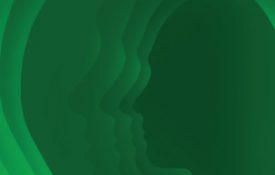-
Social Scientists Scramble to Study Pandemic, In Real Time
If pandemic lockdowns have people feeling a bit like lab rats stuck in cages, in some ways that’s exactly what they are. As the coronavirus touches on virtually every part of life around the globe, social scientists are rushing to suck up real-time data on how people are responding to the unfolding pandemic. Economists are gathering data about supply chains. Political scientists are scrutinizing how government responses track with ideology. Psychologists are monitoring children in after-school programs. Behavioral scientists are surveying thousands of people to see how they respond to information in a crisis. ...
-
We Get, and Give, Lots of Bad Advice. Here’s How to Stop.
APS Member/Author: Adam Grant When we turn to others for advice on major career decisions, they sometimes steer us in the wrong direction. Warren Buffett’s father, along with his mentor, discouraged him from entering the securities business. Walt Disney’s brother and wife both tried to talk him out of making “Snow White.”And last summer, when I polled my Twitter followers about the worst career advice they had received, Monica Lewinsky’s response went viral. She had been told that “an internship at the white house will be amazing on your resume.” Why does so much career advice end up being misguided? As an organizational psychologist, I’ve given more than my share of bad advice.
-
Playing Tight And Loose: How Rules Shape Our Lives
At the 2014 World Cup in Brazil, Japanese soccer fans did something striking: they started going through the stadium, cleaning up the trash that was left behind. A lot of people were baffled by this behavior, but Michele Gelfand, a psychologist at the University of Maryland, sees their actions in the frame of what she refers to as "tight" and "loose" cultures. Tight cultures, she says, are more rules-oriented. Loose cultures are more permissive. ... Gelfand studies how individuals, organizations, communities, and nations are shaped by their cultures. Recently, she has looked at the coronavirus pandemic through the lens of tight and loose cultures.
-

New Content From Perspectives on Psychological Science
A sample of articles on how infants learn, talent development across domains, and student characteristics related to college trajectories.
-

New Content From Current Directions in Psychological Science
A sample of articles on infant cognition, desire for food and drink, an approach to overcome the limitations of single studies with a small number of participants, and the relationship between decision making and intelligence.
-
Coronavirus and Its Global Sweep Stokes Fear Over Facts. Experts Say It’s Unlikely to Produce ‘Apocalyptic Scenario’
Coronavirus is in the global spotlight, but a secondary character in this unfolding drama threatens to upstage the grim protagonist: fear. Chalk that up to what it means to be human. Animals have a fight-or-flight response to real and present danger. We have that maddening ability to go a step beyond and imagine what isn’t there. “Humans often can develop a robust and pathological fear of things that might not happen, to create realities that don’t exist,” says Elizabeth Phelps, Harvard University’s Pershing Square professor of human neuroscience. “So yes, of course you can overdo it.” ...

